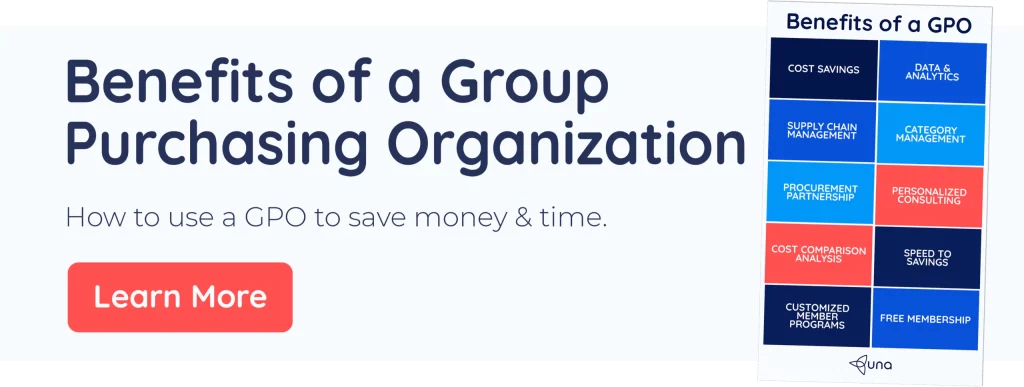In procurement, the instinct is often to chase every possible saving, squeezing suppliers and stakeholders for the lowest price. However, Philip Ideson, Founder and Managing Director at Art of Procurement, argues that this approach can backfire in episode 228 of The Sourcing Hero podcast, explaining that developing the right skills that save money in procurement is more effective than simply pushing for the lowest price.
Skills That Save Money in Procurement
Drawing from his experience as a procurement professional and his observations of the field's evolution, Ideson proposes a counterintuitive strategy: sometimes, leaving a little money on the table leads to greater rewards over time.
“This has been a foundational philosophy for me. If you build strong supplier relationships, if you focus on collaboration as much as you possibly can in any situation, if you leave a little bit of money on the table because you’re not trying to extract every last cent … when you take a step back and look over a longer window of time, savings will follow."
Aggressive Procurement Professionals Lose Their Jobs
Ideson points to real-world pitfalls of overly aggressive tactics:
“The world is littered with examples of procurement leaders and professionals who saved more money than what their objective was, then were let go unfortunately because their relationships with everyone around them had deteriorated so much in service of getting those savings.
And yet, if you are really trying to work as a service provider to provide value for those you are serving (your stakeholders and suppliers), even if the savings don’t hit your exact target, it’s likely you’ll be thought of in a strong way because you’ve enabled your stakeholders’ success. Leaving a little money in the short term means more reward longer-term."
This mindset shifts procurement from a zero-sum game to one of mutual benefit, where skills like relationship-building, negotiation, and influence drive sustainable cost reductions.
Building Strong Supplier Partnerships
At the heart of Ideson's philosophy is treating suppliers as allies rather than opponents to access savings that may not be immediately visible. For example, accepting a marginally higher price might secure better terms, like extended warranties or faster delivery, which prevent costly disruptions down the line.
This isn't about “hugging it out.” Ideson stresses balance:
"I don’t want to suggest that you just want to be a friend to everybody. You have to be comfortable and confident in when to say ‘no’; it’s not just doing what everyone wants you to do and saying yes to everything a stakeholder or supplier says."
Fostering Stakeholder Relationships
Ideson traces his own success back to early lessons in stakeholder engagement.
“When I think about my growth in procurement, the thing that set the foundation was a focus on stakeholder relationships. That was something that I learnt really early in my career. At the end of the day, my stakeholders, my collaborators within the business were typically more knowledgeable about the thing I was helping them buy than I was.
And so I always had to find ways to demonstrate I could bring value to the table. Listening, having empathy, and focusing on building relationships with people."
Stakeholders often know their needs better than procurement does, so listening is essential. Without it, even the best cost-saving ideas can fall flat.
Mastering Negotiation With Relational Intelligence
Negotiation remains a core skill, but Ideson emphasizes integrating it with relationship-building:
"Really smart negotiators invest in the ongoing relationship between the companies. You need the fundamentals to know which levers and strategies to use in any given situation. But you can’t influence people to your point of view and drive change if you don’t have that relational side of it."
Data and facts are essential, yet they're not enough on their own. "You can have all the data and facts at your disposal that shows them what you’re suggesting is the right path of action, but you’re not necessarily going to influence people that way… and that comes from the softer skills side of the equation."
Providing Optionality and Influence
Procurement rarely holds the purse strings, so influence is key. Ideson reframes the role:
“99% of the time we’re not the budget holder. Someone else is the decision maker. We sometimes see our role to protect the business from themselves and thinking that the business doesn’t know the right commercial approach, and that’s where we come in.
I’m not sure that’s the right mindset. I think it’s about how to help provide optionality in decision-making on where the business ultimately decides where to spend their money based on a number of different factors, which includes cost, risk, innovation potential … all those elements.”
Joining a Group Purchasing Organization (GPO)
We’d be remiss if we didn’t mention another key skill that can significantly save money in procurement: the ability to leverage group purchasing organizations (GPOs) like Una.
A group purchasing organization leverages its collective buying power to secure deeply discounted pricing and unmatched contract terms from a vast supplier network. At Una, we leverage over $100 billion in group buying power to secure impressive discounts.
Members get immediate access to over 2,500 pre-negotiated supplier contracts and see an average of 18-22% savings across multiple categories. There are zero obligations. Una is free to join and our contracts are free to use as you see fit.
The Path to Sustainable Savings
Skills that save money in procurement extend beyond spreadsheets. They're about people and perspective. As Ideson demonstrates, prioritizing relationships, thoughtful negotiation, and strategic guidance creates lasting value. Organizations that cultivate these competencies cut costs and build resilient operations, proving that in procurement, the smartest savings come from collaboration, not confrontation.
Need help honing your skills? Our team of sourcing advisors can provide guidance and expertise. Contact our team to learn more!




